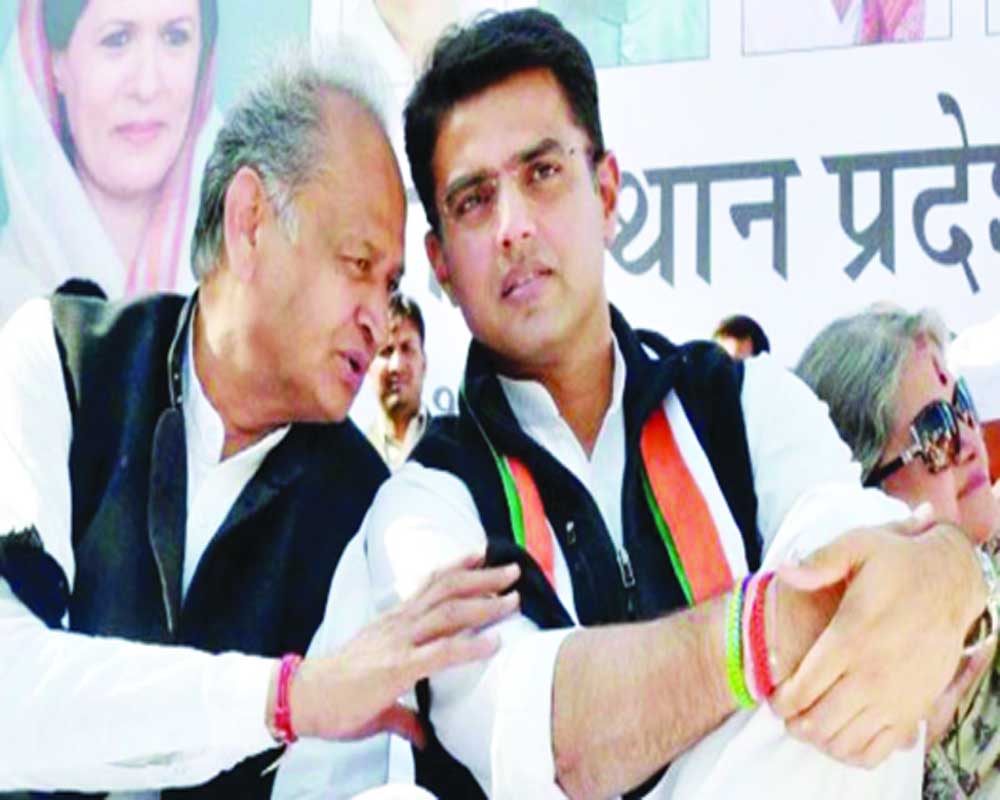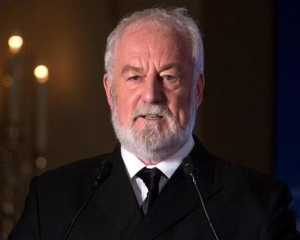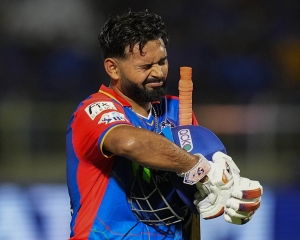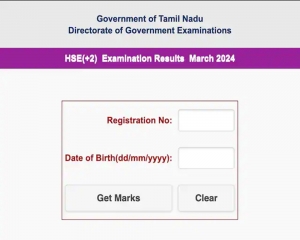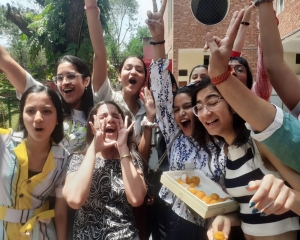It was immature of Gehlot to run down Pilot’s work on the ground simply because he is feted by the English media. Intent, political or otherwise, has no language
So there it was out again last week, the subject of linguistic apartheid. This time it took Rajasthan Chief Minister Ashok Gehlot to stoke the perennial conflict between the genuine earthiness, rooted realism and honest communication of the Hindi-speaking northerner and the assumed glibness, skimming concern and a feudalistic empathy of the English-educated elite for the countryside. There is no doubt that as a loyalist chieftain of the Congress court and an artful politician who knows to convert every situation in his favour, he has staying power. But to dismiss the comparative weightlessness of his challenger, Sachin Pilot, to the latter’s good looks and English-speaking ability was all too uncalled for and a facile dismissal of home truths. “Speaking good English, giving good quotes and being handsome isn’t everything. What is in your heart for the country, your ideology, policies and commitment, everything is important,” Gehlot said of Pilot’s attempt to dethrone him.
Many could argue that Gehlot survived purely by dint of his hold on the organisational matrix of the Congress in the State and encashed the high command’s indulgence to parcel away fiefdoms to regional stalwarts so long as they kept the party going. In fact, it is to Gehlot’s embarrassment that the Congress lost the Assembly elections in 2013 and was routed in the Lok Sabha elections of 2019 under his stewardship. Yet he continues to be Chief Minister, a post made possible by Pilot’s working the ground and ensuring the party’s victory in the 2018 Assembly polls. Many would also argue that Pilot became too over-ambitious with one success and while Gehlot had provoked him in many ways to isolate him, he could have avoided falling into the wily senior’s trap and persisted a bit more than now filing a case against his own party, the spirit of which flows in his DNA. But to run down Pilot’s work on the ground simply because he is feted by the English media or to question his education is just as immature.
Nobody can doubt Pilot’s commitment. He gave up his comfort zone in Delhi, went back to his father Rajesh Pilot’s karmabhoomi, lived down his dynastic entitlements and urbane manners, became a safa-wearing local and had no problem in his outreach speaking both Hindi and dialects with equal ease. He couldn’t have consolidated the Gujjar votebank if he wasn’t sincerely invested. And for five years, he wasn’t currying favours in Delhi or within the Congress — he could very well have assumed a Central role — but was working with dedication among his people. Intent, political or otherwise, has no language. And ambition, positive or negative, cannot soar without digging your heels in the ground. Even within the Congress, the younger leaders, conscious of their liberalised and upwardly mobile grooming, have mastered proficiency in Hindi to get through to voters. Hindi-speaking States have the most Lok Sabha seats in the end. Rajiv Gandhi himself was not as fluent in Hindi as daughter Priyanka is.
Besides, there is a latent hypocrisy about Hindi chauvinism when almost all grassroots-based politicians have ensured their progeny not only attended English medium schools but graduated from foreign universities. The second generation of almost every federal party is what Gehlot calls “media-friendly” and heard during TV debates. Despite all their valiant rusticism, all socialist leaders have wanted their children to have cultural equivalence in a globalised world where English has emerged as a transactional language. Why politicians, society at large has made peace with English as a connective tissue. And if the popularity of English-speaking classes is any indication even in the smallest of towns, it has become a key qualifier of aspiration.
Then there is the other issue of linguistic plurality, which the ruling BJP, driven by its own majoritarian agenda in the voter-heavy heartland, has sought to undermine by calling for Hindi as a language for national unity. This orthodoxy immediately erodes the worth of federal leaders for a national role, simply because they are proficient in their mother tongues, which are much older languages than Hindi itself. It is one of the reasons why a HD Deve Gowda or Mamata Banerjee are mostly derided for their limited Hindi articulation skills and, therefore, seen as incapable of leading the nation. PV Narasimha Rao, the first non-Hindi-speaking Prime Minister, found acceptability because of his proficiency in Hindi. But apart from his mother tongue Telugu, he was just as expert in speaking Oriya, Bengali, Gujarati, Kannada, Sanskrit, Tamil and Urdu. Yes and he knew eight foreign languages, including English. Did that make him any less of a modern Chanakya in politics?
Besides, Hindi has failed to emerge as a bridge language except in its soft power avatar courtesy our Hindi films. Most contiguous States, particularly in the South and East, tend to understand each other on common derivatives than requiring Hindi to connect. It is true that many Indians have a working knowledge of Hindi but that doesn’t mean they are comfortable expressing themselves in it. And imposing it as a qualifier language in two-thirds of the country where it is not the mother tongue would be the most anti-national move there is. One that Gehlot is guilty of endorsing like Home Minister Amit Shah who mooted the idea of Hindi as our lingua franca.
One can cite two examples of Indian politicians who scored high on the acceptability and popularity index despite their language proficiencies or deficiencies. One is Odisha Chief Minister Naveen Patnaik, who is holding on to his fortress, overcoming the Modi wave in 2019, and still not fluent in Odia. And the other is Rashtriya Janata Dal (RJD) chief and former Bihar Chief Minister Lalu Prasad Yadav, who gave political legitimacy to the backward classes and is still date feted by the English media, not merely for his buffoonery that he indulged in for effect, but for his penetrative understanding of the subaltern and ability to take on the ruling establishment fearlessly, be it on beef bans or identity politics.
It is said that Naveen Patnaik could not pass in Odia grammar. He still cannot sustain a long speech in Odia extempore unless it is written out in English. Groomed by an English nanny and a Punjabi mother, he had never conversed in Odia at home while growing up. With classes, he understands it now perfectly but is not eloquent. This has left him vulnerable to criticism. Even Shah ridiculed the Chief Minister’s native language-speaking deficiency as a reason to dethrone him during his campaign pitches. But Odisha was still happy to elect him as Chief Minister for a record term. For the writer and voracious reader he is, his acquired knowledge has informed his work on the ground. He has pulled up the State’s development indices, steered it through painfully destructive natural disasters, chosen to stay at home, travelled across the State, connected with villages at the block level, strengthened panchayati raj institutions and unfurled people-friendly schemes. In short, he followed model State principles and gave hope to the Odias when they were seemingly adrift. And his lifestyle is so simple that people loved the essence of the man than the language he spoke. The media chases him still but he is comfortable not over-exposing himself and blending with people’s sensibilities. This has endeared him to the masses, who at one time saw Odia as a unifier of the State — that being a foundational principle in fact — considering they are more dependent on local dialects in communicating between themselves. Now Patnaik has himself replaced language as the vehicle of people’s emotions.
Lalu, by contrast, weaponised his verbal prowess for political gains, becoming a brand and an attitude in the process. And he used his bucolic charms to convert the English media into his constituency and justify his ways and means of running the State, even through wife Rabri Devi, when he was implicated in the fodder scam. He is the most media-savvy politician even today; just visit his Twitter handle, drawing eyeballs through his daily criticism of current Chief Minister Nitish Kumar’s mishandling of the Corona crisis. Yes, his integrity has been suspect, even now serving jail terms for accumulating disproportionate assets and encouraging criminalisation of politics, but he did give political stake to the backward classes and understood the tidal current of coalition politics. His machinations to stay in power were relevant till the time the voter became demanding and decided the leader he wanted through his/her ability to deliver.
Still, every journalist wants to interview him, be it for his rawness or his old fox aura. He used the backward card to wrest power and delivered promises in small doses so that his constituents would keep voting him back to power. Not that he couldn’t be a performer if his stint as Railway Minister is any indication. For his failure as a doer Chief Minister, he turned around the Railways dramatically enough for his tenure to be included as a case study in the curriculum of IIM Ahmedabad. World institutions feted him and sought his bytes. For he achieved a turnaround without hiking either passenger or freight rates. Be it e-ticketing or model stations, he was forward-looking, too. He could control his destiny. And he never antagonised the media, coopting it in his agenda. He never abhorred English, spoke it even when needed. He is still the most vocal secularist-socialist out there. Language be damned. Gehlot needs to learn from his party’s ally.
(The writer is Associate Editor, The Pioneer)













